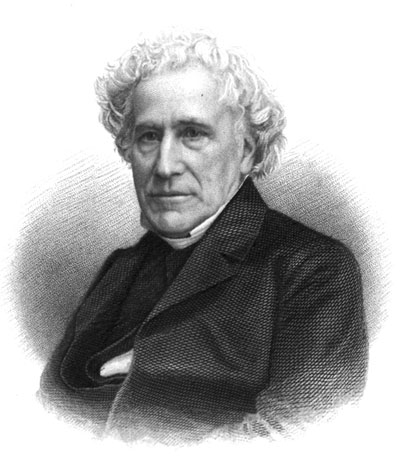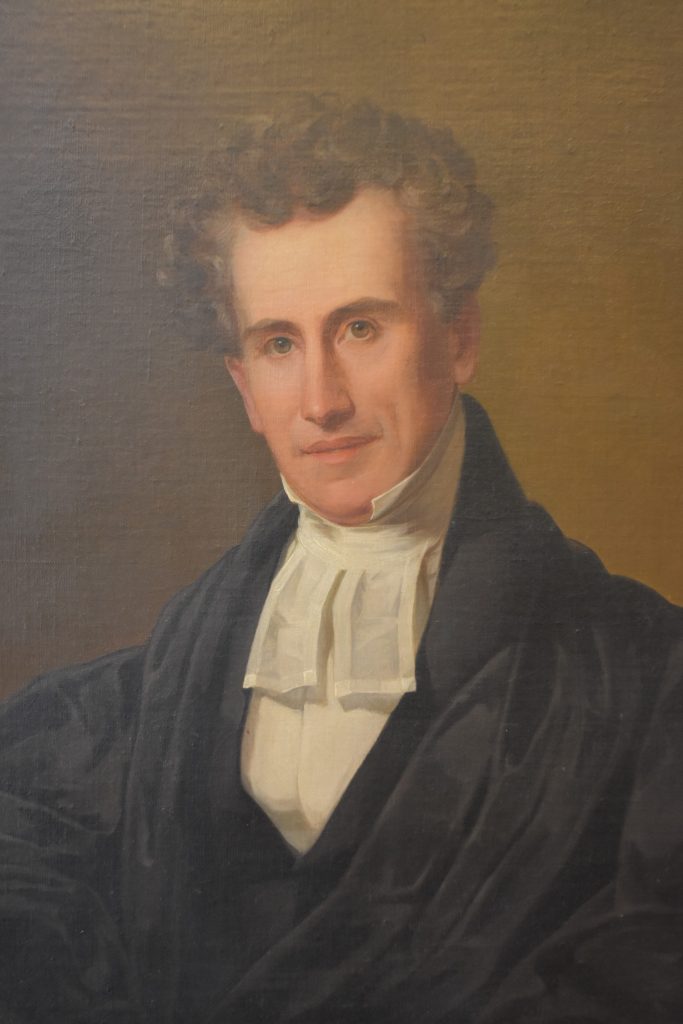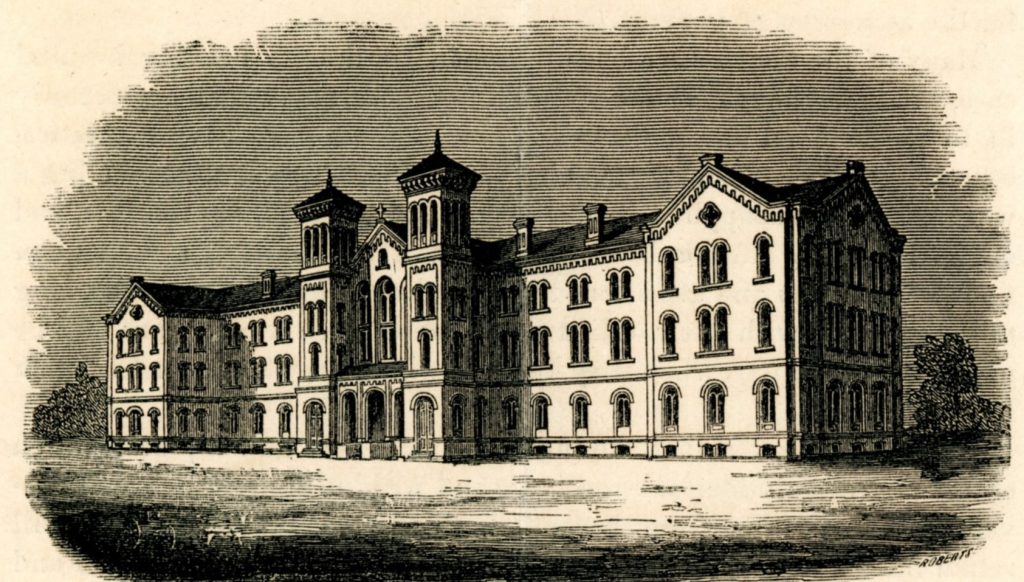
William Augustus Muhlenberg, left, (September 16, 1796-April 8, 1877), born in Philadelphia, PA., was an Episcopal clergyman and an influential educator. His great-grandfather Henry Melchior Muhlenberg (1711–1787), immigrated to America in 1741 from Hanover, Germany in response to the call for a Lutheran minister to pastor several churches in Pennsylvania, and is considered the father of Lutheranism in America. An uncle of William’s fought in the Revolutionary War, and his grandfather served as a member of the First and Second Continental Congress and as Speaker of the House of Representatives under President George Washington.
Muhlenberg was educated at the Philadelphia Academy and the Grammar School of the University of Pennsylvania, graduating from the university in 1815. In 1817, he was ordained a deacon in the Episcopal Church and became assistant to Bishop William White (1748–1836). In 1820, Muhlenberg was ordained a priest, and until 1826, he was rector of St. James’ Church in Lancaster, PA, before resigning his charge to study the educational systems of Europe.
However, before leaving for Europe he agreed to fill the pulpit at St. George’s Church in Flushing, Queens, as a six-month replacement. This changed the course of his life. At St. George’s, he became acquainted with a group of men who wished to establish a boy’s school, and he agreed to lead it. Called The Flushing Institute, Muhlenberg initiated a successful curriculum for the education of boys that was duplicated in many other schools in the country.
Over time, Muhlenberg developed plans to establish a college and grammar school on a piece of land in Queens, NY, which then became known as College Point. He intended to merge The Flushing Institute with the school there, but the financial crash of 1837 left the funding promises unfulfilled. Without adequate endowment, the state legislature denied the charter for the new schools.

In 1845, Muhlenberg left The Flushing Institute in the hands of his assistant and moved to New York City to become rector of the Church of the Holy Communion, a church built by his sister, Mary A. Rogers, as a memorial to her late husband, John, who desired to found a church where rich and poor would worship together as one community. An early proponent of the social gospel, Muhlenberg founded various social welfare-related ministries through the Church of the Holy Communion, to assist the poor community which surrounded the church building at West 20th Street and Sixth Avenue.
Muhlenberg came to see that access to medical care was a serious need of the community. On October 18, 1846, the day set aside to honor St. Luke the Physician on the liturgical calendar, he announced to his congregation that he would set aside half of the church’s Sunday offering for the founding of a hospital in which those without means to pay could come and be treated without charge. It took quite a while to raise the funds to build it, but St. Luke’s Hospital opened in 1858 on West 54th Street and Fifth Avenue. The archival collection of materials about St. Luke’s Hospital are found here.

In 1866, seeing the need to care for disabled children and the elderly, Muhlenberg founded the Church Industrial Community of St. Johnland on Long Island. The Community would train the children for employment within their physical limitations and provide care for the elderly who had no family to care for them. He bought 535 acres with 1.5 miles of shorefront on the Long Island Sound near Kings Park. This hospital exists still, as an elder care facility. Materials on this facility are found here.
Rev. Muhlenberg had rooms at St. Luke’s Hospital where he lived and worked for the rest of his life. He died on April 8, 1877, in St. Luke’s Hospital, and was buried in the St. Johnland Cemetery. More information about him can be found in the Archives, find his catalog record here.
In 2019, the Archives Committee began promoting October 18 as Founder’s Day to remember and honor Muhlenberg’s contributions to our city in founding St. Luke’s Hospital, now Mount Sinai Morningside. Last year, in conjunction with the Morningside Heights Historic District Committee, a historical marker honoring Muhlenberg was placed in the garden in front of the W. 113th Street entrance. This year, as in prior years, a dish which reflects an 1850s diet will be on the menu at Luke’s café. Mount Sinai employees can check The Daily for additional events celebrating the day.
Authored by Michala Biondi, Associate Archivist in The Arthur H. Aufses, Jr. MD Archives
